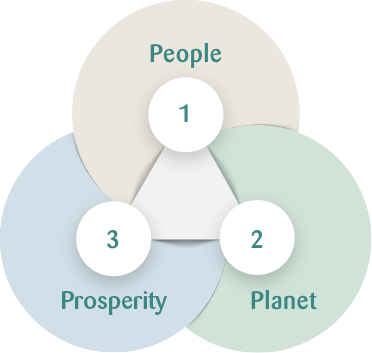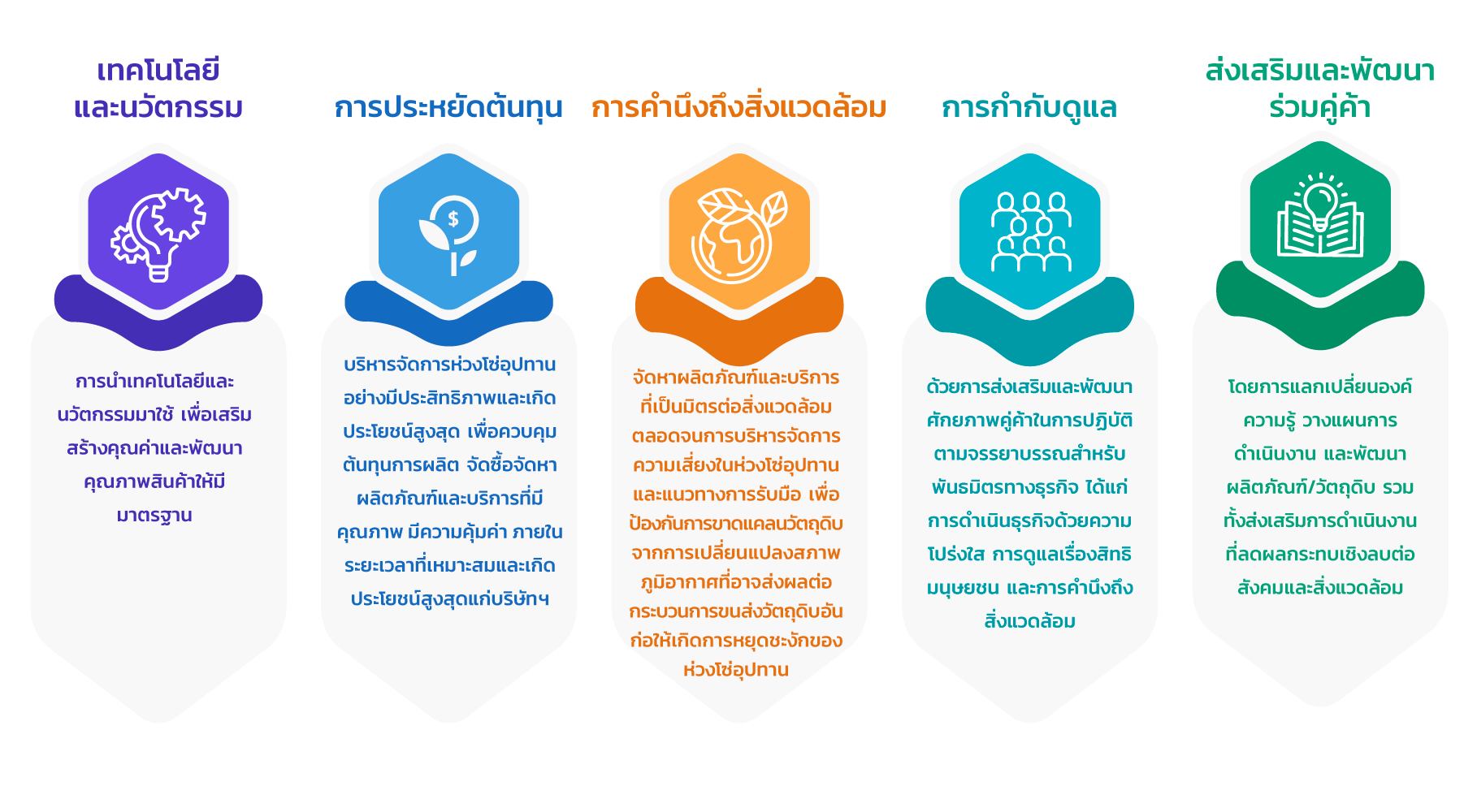
เอส แอนด์ พีกำหนดกลยุทธ์สู่ความยั่งยืน ภายใต้ 3 เสาหลัก ได้แก่ People Planet และ Prosperity บนพื้นฐานของการกำกับดูแลกิจการที่ดี ภายใต้คำมั่นสัญญา "Healthier Family, Happier World" โดยมีจุดมุ่งหมายสูงสุดคือการรักษาสมดุลของผลกระทบในมิติทางเศรษฐกิจ สังคม และสิ่งแวดล้อม ที่เหมาะสมทั้งต่อบริษัทและผู้มีส่วนได้ส่วนเสียทุกกลุ่ม เพื่อสุขอนามัยที่ดีของผู้บริโภค คู่ค้าธุรกิจ และชุมชน ตลอดจนรักษาทรัพยากรธรรมชาติและสิ่งแวดล้อม ด้วยการขับเคลื่อนการทำงานอย่างสอดคล้องกับเป้าหมายการพัฒนาอย่างยั่งยืนของโลก Sustainable Development Goals (SDGs) ภายใต้กรอบการรายงานของ Global Reporting Initiative (GRI) ซึ่งนับเป็นเครื่องมือในการกำหนดประเด็นความยั่งยืน ขอบเขตและแนวทางการจัดการธุรกิจที่ยั่งยืนได้อย่างครอบคลุมสำหรับบริษัท อันได้แก่

การบริหารจัดการห่วงโซ่อุปทานอย่างมีความรับผิดชอบเป็นปัจจัยสำคัญที่ส่งผลให้เกิดการส่งมอบสินค้าจากกระบวนการผลิตไปสู่ผู้บริโภคอย่างมีประสิทธิภาพ และสามารถลดความเสี่ยงได้ อาทิ ความเสี่ยงด้านต้นทุน ความเสี่ยงด้าน การขาดแคลนวัตถุดิบและสินค้าคงคลัง ความเสี่ยงในการหยุดชะงักของธุรกิจ ซึ่งส่งผลกระทบโดยตรงต่อการดำเนินธุรกิจ และภาพลักษณ์ของบริษัท รวมถึงลดผลกระทบต่อผู้มีส่วนได้เสียตลอดห่วงโซ่อุปทาน
บริษัทฯ กำหนดกลยุทธ์การบริหารจัดการห่วงโซ่อุปทานอย่างยั่งยืน เพื่อเป็นกรอบในการดำเนินงาน และเพื่อการบริหารจัดการคู่ค้าให้เป็นไปอย่างมีประสิทธิผล ตลอดจนเพื่อเพิ่มผลกำไรของบริษัท และสร้างความตระหนักของคู่ค้าเกี่ยวกับความยั่งยืน ในขณะเดียวกันจะเป็นการสร้างความไว้วางใจให้แก่ลูกค้าด้วยเช่นกัน
